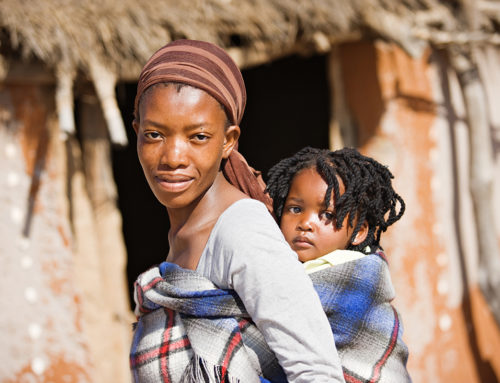Compared to other African countries, South Africa jumped on the genetically modified organisms (GMO) bandwagon very early on. The first GMO field trials in South Africa were conducted in 1989, and in 1997, with the establishment of the GMO Act, the commercial release of genetically modified insect-resistant cotton and maize was approved. Today, South Africa is the eighth largest producer of GMO crops in the world, with seven million acres of land dedicated to GMO crops, which clearly shows that the country is in favour of a technology that scares and angers the general public.
The only dry grains that are genetically modified in South Africa are maize and soy beans. The majority of the public is concerned that approximately 80% of all white and yellow maize in South Africa is genetically modified, arguing that a country’s staple food should not be tampered with. However, wheat, which is another staple food in South Africa, is still non-GMO, so bread and wheat flour are free of GMOs. All the GMO maize and GMO soybeans in South Africa are known as Bt-crops, which contain the Bt protein that is produced by a bacterium called Bacillus thuringiensis. This protein gives plants a natural defence against insects; so when pests eat the maize, the protein binds to specific cells in the lining of their gut, which kills them. Other animals, including humans, do not have these gut cells, so they are immune to Bt. Therefore, the general scientific consensus is that Bt is not toxic to humans or animals, although many people and a handful of scientists claim that it is.
Where sorghum is concerned, there is still no commercially available GM sorghum variety, even though sorghum was first genetically modified in 1993. However, there are several research projects aimed at improving the nutritional value of sorghum via genetic engineering. One of these projects, the Africa Biofortified Sorghum (ABS) project, is funded by the Bill and Melinda Gates Foundation, and aims to increase the levels of lysine, vitamin A, iron, and zinc. A lot of this research is conducted in South Africa, in collaboration with the Council for Scientific and Industrial Research (CSIR) and the Agricultural Research Council (ARC).

Other dry grains in South Africa still remain non-GM, such as popcorn, oats, millet, barley, rye, etc., and even if there are plans to genetically modify these grains, there is a strict process before it is approved. The GMO Act of 1997 governs the contained use, trial release, commercial release, and import and export of GMOs. The GMO Act aims to provide measures to promote the responsible development, production, use, and application of GMOs and to limit possible harmful effects on humans and the environment. Even though this act has been in place for 20 years, people criticise it because continuous tests are apparently not conducted on GMOs previously approved and declared safe, such as GMO soybeans and maize.
With the majority of maize and soybeans cultivated in South Africa being GMOs, it is clear that the government of South Africa is in favour of GMOs, even if it might have a detrimental effect on exports, since 38 countries, especially European countries and Russia (the most populous country to have banned GMOs), have banned the import of GMOs. This, as well as the general public’s opposition, does not seem to deter the government, who claims that GMOs are not only safe, but they are actually beneficial to the population in that it enhances food security.
With this much division on the topic, it is difficult to give a satisfactory answer on whether GMOs are good or bad, and who is right and who is wrong. It is clear, however, that there are certain benefits to GMOs, but also disadvantages. Even though many foods in South Africa contain GMOs, the people who oppose them still have the option of buying non-GMO food since they must be labelled as such. In 2004, Regulation 25 of the Foodstuffs, Cosmetics and Disinfectants Act stated that any GMO that differs substantially from its original counterpart must be labelled, but since most GMOs do not differ from their original counterparts in that respect, the labels were not added. In 2008, however, Regulation 293 of the Consumer Protection Act stated that all GMOs have to be labelled, regardless of its similarity to the original product. Unfortunately, many stores cash in on this compulsory label and use the general public’s fear of GMOs to hike the prices of products with a GMO-free label. These products are very expensive and not always available to people in rural areas, who have to deal with buying basic foods that contain GMOs, such as leading brands in milled maize products.
Power Supply heard the plight of these people and now manufactures an option of a GMO-free version of the still affordable and widely available Yabhusta Instant Porridge. Our non-GMO porridge is currently exported in bulk to customers in rural Zambia. This porridge still contains all the vitamins and minerals needed for optimum health, but will satisfy those who are either opposed to or unsure about GMOs. The micronutrients in Power Supply products not only stimulate a healthy body, but also a healthy mind, and peace of mind is now included in the GMO-free Instant Porridge.



Leave A Comment